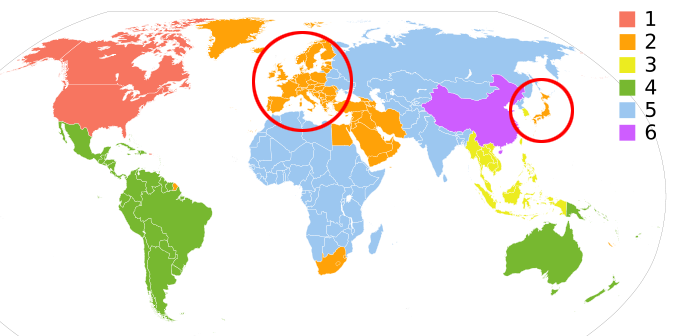One of the first things you learn as a foreigner in Japan is that people here will assume you’re intimately familiar with every word written in katakana, the writing system used for expressing foreign words, just by being a native speaker of English. Although the majority of foreign-loan words do come from English, many are taken from other languages, such as the medical terms that were imported from German during the early 20th century, or various everyday words like ankeeto (questionnaire, from the French d’enquete) or arubaito (part time job, from the German arbeit). I remember trying to make curry back in my bachelor days and stumbling because I didn’t know what the “ruu” the instructions called for was. (I now know it’s roux, the French word for cubes of curry or consomme.) This assumption that every foreigner knows everything associated with America and Europe goes beyond words, too. I was asked by the PTA of the special English school my son attends if I thought the International Baccalaureate program would be a good base for students wishing to attend university in the U.S. I’d never heard of this system, which seemed to confuse the PTA members. I was a gaijin, wasn’t I? How could I not know? They were disappointed when (after doing some research) I told them the IB program, which is widely accepted in Europe and elsewhere, wasn’t officially recognized by most mainstream U.S. universities the students would likely attend, since Japan considers itself an honorary European nation.
Here’s my proof: Japan and Europe have the same DVD region code!















